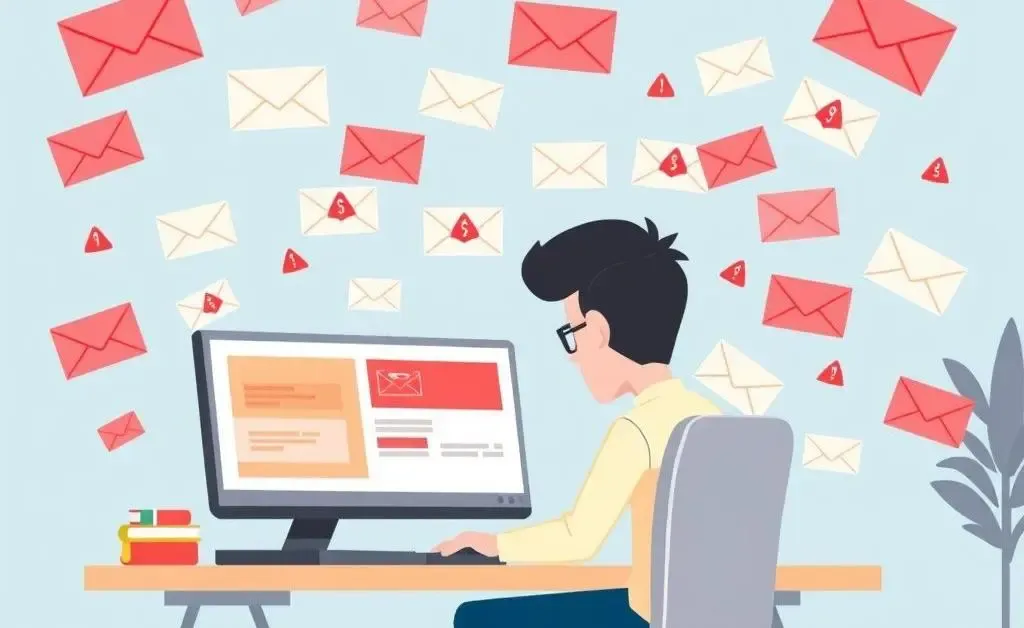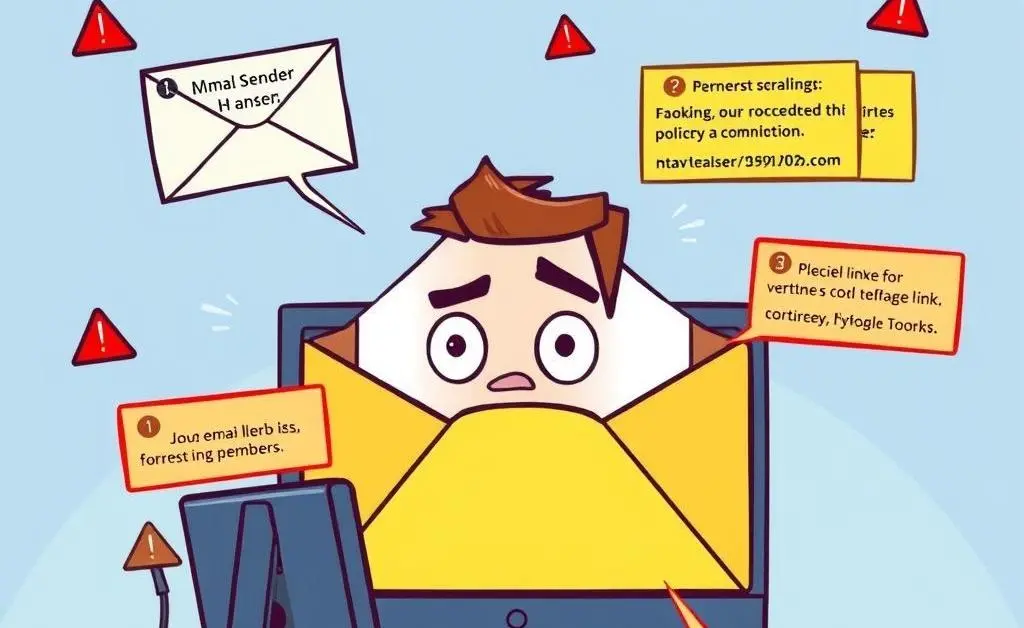Decoding Email Scams: How to Protect Yourself and Your Finances
Learn to identify and avoid email scams that can compromise your financial security.

Have you ever opened an email and questioned if it might be a scam? You're not alone. Every day, countless individuals are sideswiped by emails that look legit but are actually phishing attempts aimed at your financial security.
Spotting the Red Flags
It's key to pay close attention when scanning your inbox. Scam emails often have telltale signs. I've received emails claiming to be from trusted companies, yet there was always something fishy about them. For instance:
- Strange Sender Addresses: Look out for discrepancies, like unexpected email domains.
- Urgent Subject Lines: Phrases like "immediate action required" can urge you to act impulsively.
- Link Hovering: Hover over links to check where they really lead. Scammers often use URLs that mimic genuine websites.

Practical Steps for Safeguarding Your Information
Once, I nearly clicked on a dubious link because the email looked almost perfect. That brush made me realize we all need a practical toolkit to avoid these traps. Here's what you can do:
- Multifactor Authentication: Enabling this adds an extra layer of security, so even if your password is discovered, scammers can't access your accounts as easily.
- Regular Updates: Keeping your devices' software updated ensures you're protected against exploits and vulnerabilities known to scammers.
- Use Trusted Sources: Only download documents or visit websites linked in emails if you're certain of the sender's identity.

Protection doesn't mean paranoia. It means being informed and proactive. I've found peace of mind knowing my digital life is more secure.
What to Do If You're Targeted
Should you find yourself the victim of a scam, or even suspect you're being targeted:
- Report the Scam: Notify local authorities or the organization's fraud department.
- Change Affected Credentials: Update passwords and ensure security patches are installed.
- Monitor Accounts: Keep an eye on bank and credit accounts for unusual transactions.

Stay Connected and Informed
While the internet is an amazing resource, it's also where scams thrive. Always staying vigilant goes hand in hand with enjoying the benefits of a connected life.
Have you ever encountered a suspicious email? How did you handle it? Share your thoughts and experiences—we're all in this together!




